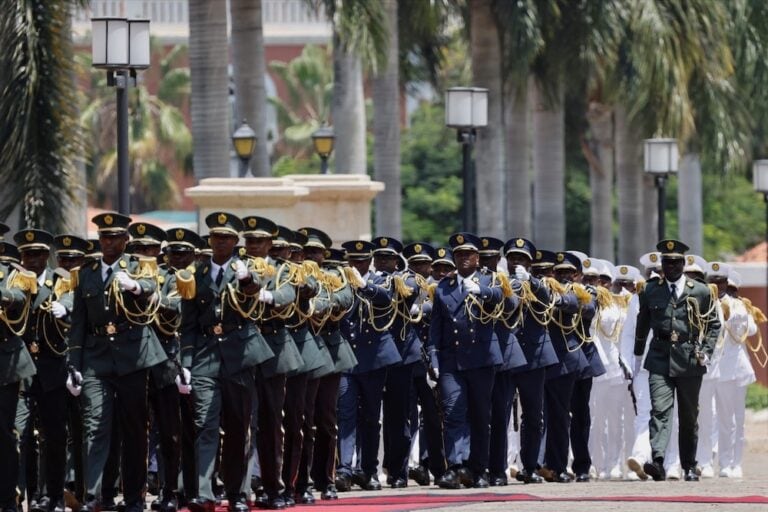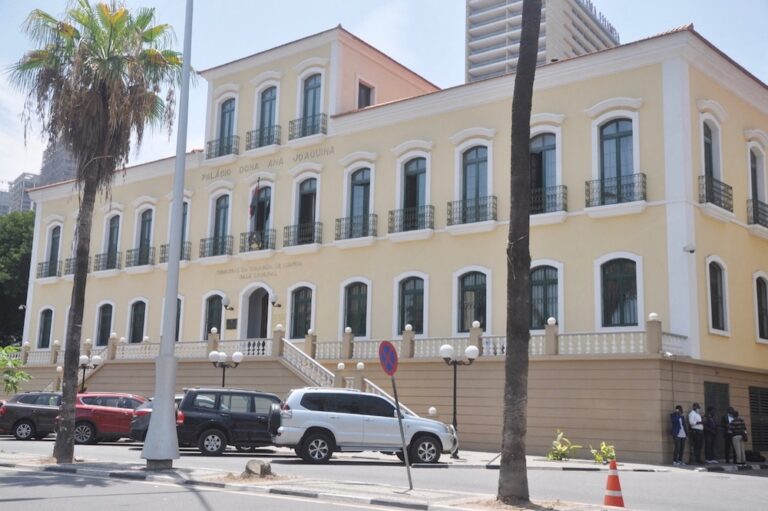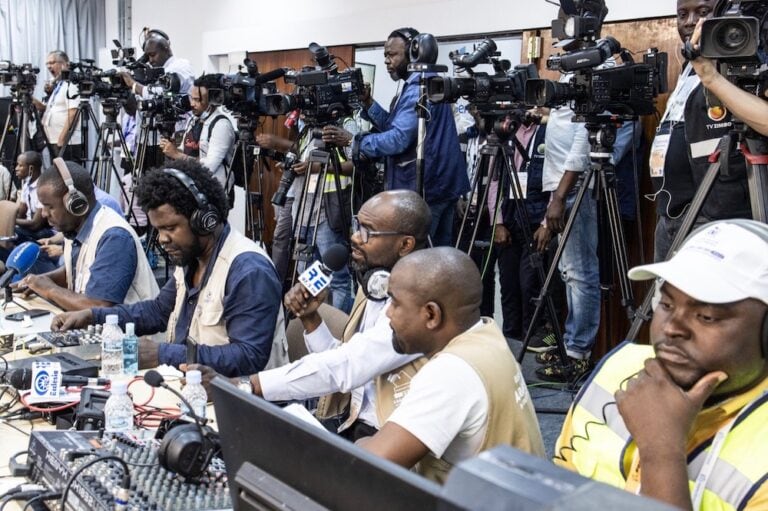(MISA/IFEX) – Journalist Isaías Soares, based in Malanje, continues to face harassment from official circles. On 7 August 2000, the provincial delegate of Social Communication (SC) in Malanje, André Antonio da Costa, summoned Soares to his office and demanded that the journalist bring all his archives and documents relating to his work as a journalist. […]
(MISA/IFEX) – Journalist Isaías Soares, based in Malanje, continues to face harassment from official circles.
On 7 August 2000, the provincial delegate of Social Communication (SC) in Malanje, André Antonio da Costa, summoned Soares to his office and demanded that the journalist bring all his archives and documents relating to his work as a journalist. The official demanded to see the documents in order to scrutinise them, in light of apparent charges being contemplated against Soares. Da Costa told the journalist that the provincial government would charge him for having revealed to Rádio Ecclésia two weeks ago that National Union for the Total Independence of Angola (UNITA) forces had attacked the municipality of Cacuso.
Soares was advised by colleagues not to take his archives nor to go back to talk to Da Costa unless he received a written subpoena to this effect. However, on 8 August, the journalist noticed an abnormal presence of police around his home and decided to remain inside. Soares returned to Malanje on Thursday 3 August after travelling to Luanda to meet with a group of international media freedom activists.
Background Information
On 2 August, it was reported that Soares, a stringer for Voice of America (VoA) and the independent Radio Ecclesia, was being banned from covering official events or reporting on military issues in Malanje province. His movement and access to official information
were also being restricted in the city of Malanje, where he is based.
The ban has apparently been in place since 1997 and, according to Soares, the order is extensive in forbidding him from entering certain official institutions, such as the governor’s palace, provincial government offices, military barracks and police stations.
In one of the most recent incidents, the governor of the province, Flavio Fernandes, forbade him from boarding a helicopter to Cacuso municipality, where he was assigned to report on the construction development of a nearby hydro-electrical dam. The journalist had an invitation from the Ministry of Water and Energy to cover the event. The governor not only forbade him from boarding the helicopter, saying he was an intruder, but also expelled him, in front of other passengers, from the airport installations.
On 20 August 1999, Soares was briefly detained at the Malanje Military headquarters for having broadcast, through VoA, an interview with the representative of the World Food Programme (WFP) in Malanje, Jean Charles Day. In the interview, Day claimed that soldiers and police officers were looting the warehouses housing food donated by WFP for needy displaced people. The Military Judiciary and the Provincial Direction for Criminal Investigation questioned Soares for “Crimes Against the State Security”. During this period, several army and police officers were arrested for looting WFP logistical supplies, while WFP suspended its humanitarian aid to Malanje until the situation was clarified.
While in detention, Soares was accused of having been a UNITA spy. Consequently, the journalist was restricted to within a ten kilometre radius of the city. However, a month later his mother died in the capital, Luanda, and he broke his restrictions to attend her funeral. As a result, he was fired from National Radio, where he was permanently employed and which was his main source of income at the time.
Prior to that, in 1997, Soares faced a seven month suspension from National Radio, on the orders of Governor Fernandes, for negative coverage on VoA on the preparations for the provincial ceremony to mark Angolan Independence Day.
On 11 November 1999, Soares was expelled by a police office from a public square, Hojy Ya Henda, where Independence Day celebrations were taking place. The officer told him that he was acting on the instructions of the governor.
Soares has affirmed that his telephone is tapped and that he is often threatened with severe physical punishment or death by army and police officers, while psychological pressure has also been placed on his family and close friends, to discourage him from being critical.


